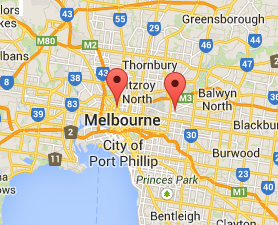Create beautiful scholarly maps with TileMill
Do you have data that needs to be displayed on a map?
This is a hands-on workshop teaching researchers how to create maps from research data with TileMill, an easy-to-use web-based cartography tool. It is useful for any researcher who needs to produce maps showing geographically-oriented data sets (locations of language communities, cultural artefacts, historical events) – or even just a thematically appropriate base map to incorporate into a website. Researchers will be given the tools to have full aesthetic control over the maps they create, for presentations, posters, papers, blog posts or web sites.
Humanities researchers very often have geospatial datasets (although they don’t call them that) they wish to communicate. One common approach is outsourcing the mapmaking process to a GIS specialist with a conservative result and little opportunity to play, innovate or iterate. The other common approach is to drop marker pins on a Google Map, resulting in a very impersonal, cluttered, ugly, thematically wrong map (freeways in 1860). TileMill lets you become the cartographer, with full control over how every element is rendered – or not.
Marker pins on Google Maps: it’s like using Comic Sans for your academic poster.
This workshop is a intensive, condensed form of a course normally given over three evenings. Hence some materials will be given as an overview with resources for further self-learning.
The workshop outline is as follows:
- overview of TileMill capabilities (15 minutes)
- basic map styling using CartoCSS (60 minutes, including several brief exercises)
- loading data and using geocoding to convert addresses to locations (45 minutes)
- exporting maps for papers, posters (15 mins)
- creating webmaps for blog posts, web sites (15 mins)
- Q&A, additional material as requested throughout (30 mins)
Workshop learning objectives:
After completing the session, the attendee will be able to:
- create a map from appropriately prepared research data
- use CartoCSS, a cartography formatting language, to create an aesthetically pleasing map
- publish maps as either static images or dynamic web maps
This workshop costs $150.00 and prior registration is required.
Date: 17th March 2014 (afternoon)
This workshop will appeal to postgraduate students and academics (about 30 people).
Anyone is welcome from industry, universities and government.
Prerequisites:
Participants must provide their own laptop. Those without laptops should form pairs or threes to participate in the exercises.
About the presenters:
Steve Bennett has been helping researchers at Victorian universities with technology since 2008, as an analyst, project manager and technology communicator. With degrees in software engineering, French and linguistics, he straddles the two halves of the digital humanities. He has a particular interest in maps and cartography, as a contributor to OpenStreetMap and creator of the cycle tour.org website.
David F. Flanders began his obsession with maps while leafing through his grandparents collection of “National Geographic”, discovering the maps that came with each new edition of the magazine was always a joyful way to learn. As little David grew up he was frustrated to find that tools like Google Maps were not able to produce the same beautiful and informative maps from his childhood memories. Until TileMill, TileMill gives the power to create maps that not only demonstrated how beautiful a map can be, but also how powerful it is for someone to tell a story. If a picture is worth a thousand words, then a map is worth a dissertation!
Currently David is the Research Community Manager for Research IT Solutions at the University of Melbourne, where TileMill is one of the many training workshops that the University provides its twenty-five thousand researchers in everything from mapping (TileMill, qGIS, ArcGIS) to statistics (RStat, MatLab, Strata), Modelling (CAD, Abaqus, CAELinux), Sequencing/Workflows (Galaxy, Health Informatics, Surveys), and many more which are part of our ‘Research Bazaar’! Learn more about the Research Bazaar via the #ResBaz tag and how researchers have the opportunity to get training on all the research tools essential to their research!

